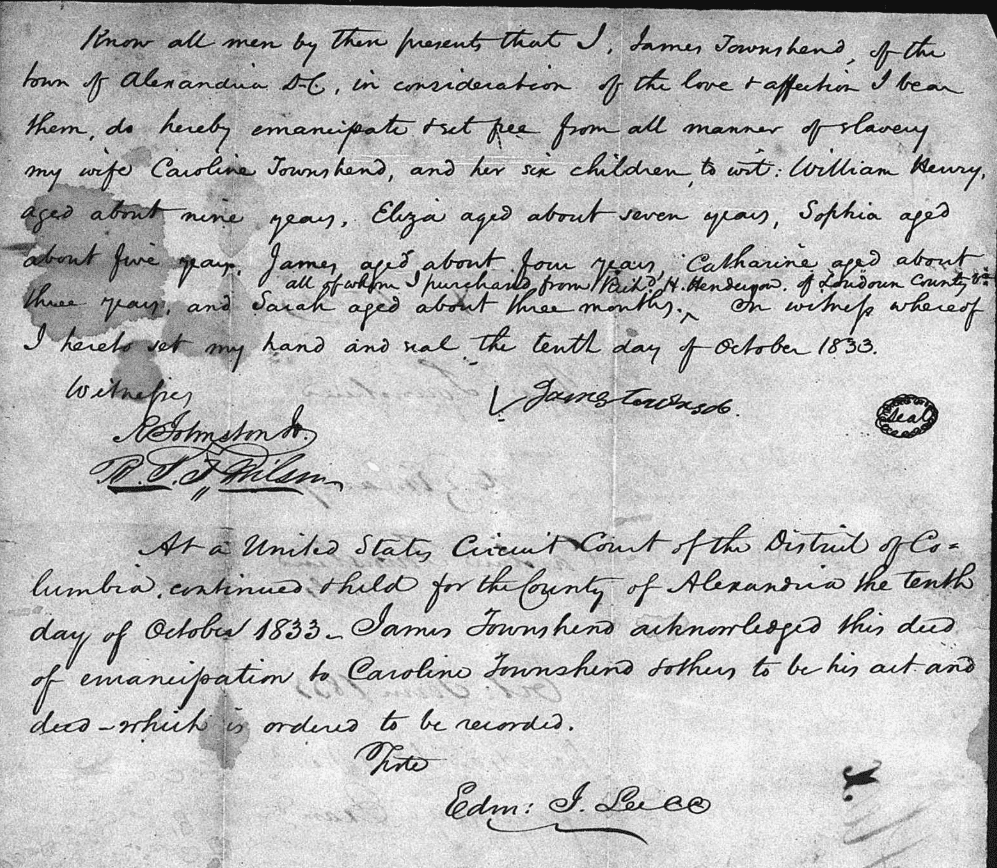
Register of Free Negroes
The Register of Free Negroes was a legal record maintained in the United States, primarily in Southern and border states, during the late 18th and 19th centuries. These registers documented the status of free African Americans, certifying their freedom in a society where slavery was the dominant institution.
The legal landscape for free African Americans was complex and varied by state and locality. Proof of freedom often required official documentation, which could involve fees and regular renewals. Non-compliance carried severe risks, including fines, imprisonment, or re-enslavement. These registers highlight the daily struggles free African Americans faced in asserting and maintaining their liberty within a racially discriminatory system.
Purpose and Function
The Registers of Free Negroes served multiple purposes, providing both legal protection and governmental oversight for free African Americans. These records:
- ➡️ Certified Freedom by requiring free individuals to register and obtain certificates, which protected them from unlawful detention, accusations of being fugitive slaves, or re-enslavement.
- ➡️ Outlined the Registration Process, where individuals appeared in court, presented manumission papers, or provided witness testimony, after which they received certificates or “free papers” with identifying details.
- ➡️ Imposed Annual Fees and Penalties, typically ranging from $1–$6, with failure to pay resulting in jail time, indenture, fines, or expulsion from the state.
- ➡️ Enabled Government Oversight by allowing authorities to monitor residency, movement, and employment of free Black individuals.
- ➡️ Provided Community Identification, since certificates were often required for travel, property ownership, employment, and legal contracts.
Example Entry: Harriett Elliott
No. 4 Harriett Elliott is registered as a Negro woman 25 yrs. 5 feet 6 ½ inches high, light complexion, has a dark mole under her left nostril. Born free in said county, & registered by order of Court of 3d Octo. 1859.
Click Image to Enlarge
- ➡️ Name: Harriett Elliott
- ➡️ Age: 25 years old
- ➡️ Height: 5 feet 6 ½ inches
- ➡️ Complexion: Light
- ➡️ Identifying Mark: Dark mole under her left nostril
- ➡️ Status: Born free in the county
- ➡️ Legal Note: Registered by order of Court, October 3, 1859
Where to Find These Records:
- ➡️ Local Courthouses – Many originals are preserved in county archives.
- ➡️ State Archives – Digitized or microfilmed collections are available for some states.
- ➡️ Libraries & Historical Societies – Indexes and transcripts can often be found.
- ➡️ National Archives – Federal holdings supplement state and local collections.

Historical Significance

Registers of Free Negroes are invaluable for both genealogical and historical research. They:
- ➡️ Provide proof of freedom, often the only surviving documentation of status.
- ➡️ Record personal and family connections, including parents, spouses, and former enslavers.
- ➡️ Offer community insights, showing occupations, movement, and demographics of free Black populations.
- ➡️ Highlight the paradox of freedom, underscoring the challenges of living free in a slave society.
Registration Requirement & Fees and Penalties
The legal requirements for registering free African Americans varied widely across states. Most laws required regular renewals, payment of fees, and sometimes financial bonds. Failure to comply could result in harsh consequences, including arrest, fines, indenture, expulsion, or even re-enslavement.
| State | Law or Requirement | Fees Required? | Consequences for Nonpayment |
| Alabama | Mandatory registry with courts; strict restrictions on land ownership and employment. | Yes ($2–$6) 1833-1865 | Fines, imprisonment, or re-enslavement. |
| Connecticut | Gradual emancipation laws required certificates for freedom and regular renewals. | Yes ($1–$3) 1784-1865 | Arrest, fines, or deportation as vagrants. |
| Georgia | Free Blacks required to register and provide financial bonds ensuring good behavior. | Yes ($2–$8) 1818-1865 | Arrest, fines, re-enslavement, or removal from the state. |
| Illinois | Enforced Black Codes requiring registration, bond payments, and residency permits. | Yes ($3–$6) 1819-1865 | Fines, imprisonment, or forced labor contracts. |
| Indiana | Banned Black migration and required proof of freedom papers for legal residency. | Yes ($2–$4) 1851-1865 | Arrest and removal from the state. |
| Louisiana | Stringent documentation laws for free Blacks; travel permits required for movement. | Yes ($3–$7) 1806-1865 | Arrest, labor contracts, or deportation. |
| Maryland | Required court registration and renewal; freedom papers mandatory for travel. | Yes ($1–$3) 1805-1865 | Jail, fines, or forced labor. |
| Mississippi | Residency permits and bonds required for free Blacks to remain in the state. | Yes ($1–$5) 1822-1865 | Arrest, fines, forced labor, or relocation. |
| New Jersey | Gradual emancipation laws mandated freedom papers and labor contracts for released individuals. | Yes ($1–$4) 1804-1865 | Re-enslavement or indentured servitude. |
| New York | Registration laws required proof of freedom papers and residence permits. | Yes ($1–$3) 1799-1827 | Jail time, fines, or expulsion for undocumented individuals. |
| North Carolina | Yearly registration required; individuals had to show freedom papers upon demand. | Yes ($2–$5) 1830-1865 | Arrest, indentured servitude, or expulsion from the state. |
| Ohio | Black Laws required a $500 bond for behavior and proof of employment. | Yes ($5–$10) 1804-1865 | Forced removal or indentured servitude for nonpayment. |
| Pennsylvania | Gradual Abolition Act required certificates of freedom; restrictions on movement without papers. | Yes ($1–$4) 1780-1865 | Expulsion or labor contracts to pay fines. |
| South Carolina | Freedom certificates required; additional taxes imposed for residency rights. | Yes ($3–$10) 1800-1865 | Confiscation of property, imprisonment, or deportation. |
| Tennessee | Certificates of freedom and annual registration mandated. | Yes ($1–$4) 1826-1865 | Forced indenture, labor, or expulsion. |
| Virginia | Free Blacks required to register annually and carry freedom papers (1806 law). | Yes ($1–$5) 1806-1865 | Arrest, forced labor, or deportation. |


